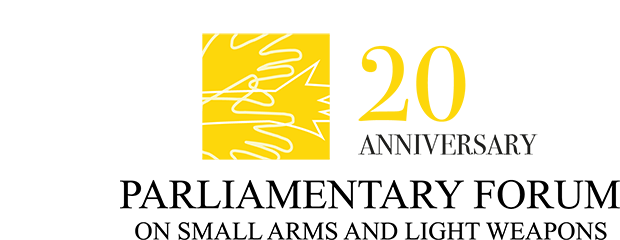17 mar NEW OPINION PIECE PUBLISHED TODAY!
Parliamentary Action – A Vital Cornerstone for Curbing the Uncontrolled flow of Small Arms and Light Weapons in Lebanon

The uncontrolled availability and misuse of Small Arms and Light Weapons (SALW) have severe consequences across our globe. The world in 2020 is marked by an upsurge of violence and armed conflicts as well as global terrorism and organised crime. Globally, around 210 000 people are killed each year from armed violence committed by SALW, according to Small Arms Survey (the Survey). In the Middle East and North Africa (MENA), many parts of the region are facing issues such as terrorism, violent extremism and armed conflict. This situation is fuelled by the uncontrolled proliferation of SALW, creating an urgent need for SALW control.
Insecurity and armed conflict in the region, in particular the Syrian crisis, have severely affected social and economic development in Lebanon. As highlighted by Stockholm International Peace Research Institute (SIPRI), the Syrian conflict has resulted in an increase of illicit arms trafficking between Lebanon and Syria in both directions. In addition, the Survey found a clear link between the low prices at the illicit arms and ammunition market in Lebanon and an increase in fatalities in Syria. This underlines the importance of immediately addressing the issue of illicit arms.
Despite the complexity of tackling the uncontrolled flow of SALW, there are effective and concise steps that can be taken to promote human security and sustainable peace. In view of the legislative, oversight, and awareness-raising functions for national implementation of international arms control instruments, parliamentarians play a key role in prevention and reduction of armed violence.
The Arms Trade Treaty (ATT) and the United Nations Programme to Prevent, Combat and Eradicate the Illicit Trade in Small Arms and Light Weapons in All Its Aspects (UN PoA) provide important international legal and political tools in this effort. Furthermore, the 2030 Agenda with its Sustainable Development Goal 16.4 has brought the reduction of illicit flows of arms for the achievement of sustainable peace and development to the universal agenda.
Young people must be an integral part of these efforts, as present actions directly affect their future. Today’s generation of youth is the largest the world has ever known. The large proportion of young people represent a key potential for social development. In Lebanon, the youth are deeply affected by domestic struggles, they have few economic opportunities and lack access to political forums where they can make their voices heard. As a result, confidence in the political system and political institutions is low and youth is often excluded from political negotiations as highlighted by the United Nations Development Programme (UNDP). The United Nations Security Council Resolution (UNSCR) 2250 on Youth, Peace and Security states that young people have the right and capacity to contribute to sustainable development and peace building. For this to become a reality, it is necessary to not only view young people as either victims or perpetrators of violence but as agents for change with the right to political participation. The majority of youth do not actively participate in violence and it is important to acknowledge that all youth groups constitute valuable resources and must be included in preventing and reducing armed violence.
Moreover, women’s representation in parliament in Lebanon ranks as one of the lowest in the region with only 5% of seats held by women according to the Inter-parliamentary Union (IPU). It is key to not only view women as victims of violence but as stakeholders to be involved in peace-making processes at all levels. For this to be realised, women’s political participation must be strengthened. UNSCR 1325 on Women, Peace and Security acknowledges that peace and security efforts are more sustainable when women are given an equal role in conflict prevention and peace building, which has also been confirmed by studies. As to not miss out on the unique perspective and valuable contributions of women, their active participation must be made a key priority in Lebanon.
In making sure that these frameworks and resolutions are being implemented in practice for the benefit of the people, the elected representatives of the people of Lebanon play an important role. Adequate tools and knowledge are fundamental to strengthen parliamentary action, specifically targeting women and youth parliamentarians, on enhancing national implementation of international frameworks for a more peaceful society for the population. An effective way to proceed with this task is to create synergies for a combined effect between international frameworks such as the 2030 Agenda, the UN PoA, the ATT, UNSCR 1325 and UNSCR 2250.
In order for men, women and children in our country – and globally – to live a safe life within the framework of human rights, the uncontrolled proliferation of SALW must be stopped. This is a complex task, as the spread of these weapons often take place cross-borders and is difficult to curb. However, by joining forces with relevant stakeholders including government actors and civil society, and by ensuring that parliamentarians, women and youth get a prominent role in the prevention of reduction of armed violence, together we can achieve more peaceful and sustainable societies.
| Honourable Elias Hankach | Ms Karin Olofsson |
| Member of Parliament Lebanon | Secretary General |
| Youth and Sports Committee | Parliamentary Forum on |
| Economy and Trade Committee | Small Arms and Light Weapons |
